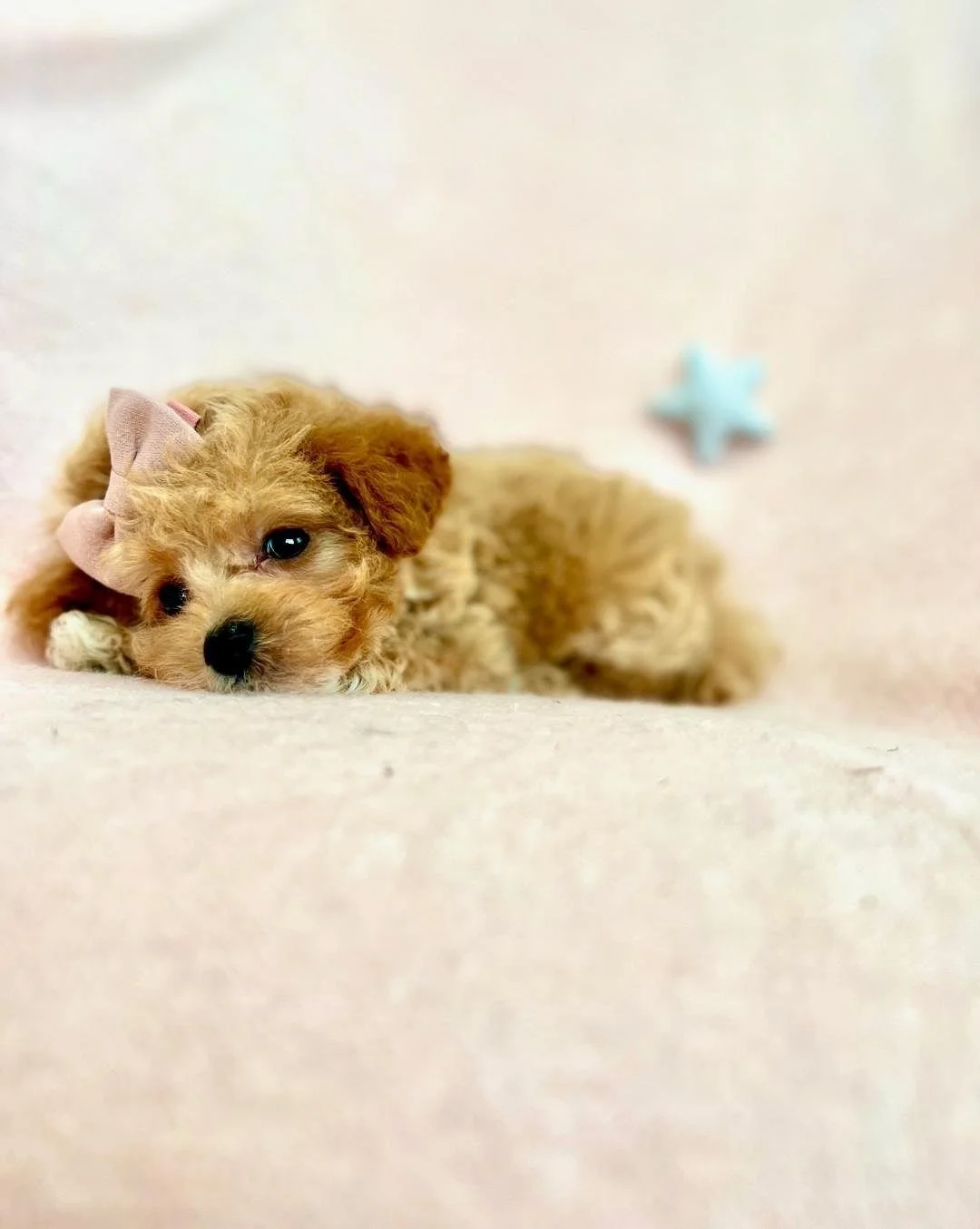Welcome to a world of adorable, pint-sized companions! If you’re searching for a teacup or toy breed puppy, TeaCups, Puppies and Boutique ® is your premier destination. Nestled in the vibrant heart of South Florida, between Fort Lauderdale and Miami, our luxury boutique has been a beloved haven for discerning puppy lovers for nearly two decades. We pride ourselves on offering a diverse selection of exquisite tiny puppies, meticulously cared for and presented with transparency.
The allure of teacup and toy breed puppies lies in their compact size and charming personalities. These small dogs are perfect for apartment living and make wonderful companions for individuals and families alike. At TeaCups, Puppies and Boutique ®, we understand the unique joys and considerations that come with owning such delicate breeds. Our commitment is to ensure you find a healthy, happy puppy that will bring years of joy into your home.
browse a wide variety of tiny teacup puppies for sale
Our Exquisite Collection of Teacup and Toy Puppies
We specialize in a wide array of the most sought-after teacup and toy breeds, ensuring that your search for the perfect companion ends with us. Our current offerings include, but are not limited to:
- Teacup Yorkies: Known for their sprightly personalities and luxurious coats, our Teacup Yorkies have been a specialty since 1999.
- Teacup Biewer Terriers: These striking tri-colored dogs are a rare and beautiful addition to any family.
- Teacup Chihuahuas: Courageous and devoted, these tiny dogs pack a big personality.
- Teacup Pomeranians: Fluffy and charming, Pomeranians are known for their alert and intelligent nature.
- Teacup Maltese: With their silky white coats and gentle disposition, Maltese dogs are pure elegance.
- Teacup Poodles: Intelligent and trainable, our Teacup Poodles are as smart as they are cute.
- Imperial Shih Tzus: Regal and affectionate, these Shih Tzus are bred for companionship.
- French Bulldogs: Known for their distinctive bat ears and playful spirit, French Bulldogs are a popular choice.
- English Bulldogs: Despite their sturdy build, these Bulldogs are known for their sweet and docile temperament.
- Pug Puppies: With their charmingly wrinkled faces and comical personalities, Pugs are always a delight.
Should you be dreaming of a specific breed or size not listed, please don’t hesitate to inquire. We offer special ordering services and can accommodate requests for nearly any teacup or toy breed puppy, and even larger breeds upon request.
Transparency and Trust: Our Promise to You
At TeaCups, Puppies and Boutique ®, what you see is precisely what you get. We believe in honest representation, which is why the images of our teacup puppies are edited only for color correction and are never photoshopped to misrepresent their true appearance. We strongly advise potential clients to be cautious of online sellers who lack a physical location. Such practices can be a red flag, as some may digitally alter images of larger puppies to deceive buyers. It is always best to visit a reputable brick-and-mortar establishment where you can meet the puppies in person, ensuring they are well-cared for in a clean and safe environment. Our physical showroom allows you to interact directly with our adorable puppies, offering peace of mind and a genuine connection.
Health and Well-being: Our Top Priority
The health and safety of our tiny teacup and toy breed puppies for sale are paramount. Every puppy that leaves our boutique is accompanied by an official health certificate signed by a licensed veterinarian. Furthermore, each puppy comes with a 14-day viral guarantee and a yearlong health guarantee covering hereditary and congenital defects.
Our delicate puppies are housed in clean, cozy puppy condos equipped with warming blankets and heating pads, providing a comfortable and safe resting place. We never confine them in cages with cold, wire flooring. Our dedicated in-house veterinary technician and kennel staff work tirelessly to maintain the highest standards of cleanliness and health for all our puppies. To ensure they remain in perfect health, a licensed veterinarian conducts thorough examinations every Friday afternoon. We are committed to providing our puppies with nothing less than the very best care.
Delivery and Special Orders
Understanding the delicate nature of our tiny teacup puppies, we do not ship them alone via cargo. However, we are pleased to offer a secure and reliable hand-delivery service for our teacup and toy-sized puppies to clients across the United States and internationally.
For those seeking specific breeds or desiring to place a special order for a teacup puppy, toy puppy, or even a large breed puppy tailored to your specifications, please call us at 954-985-8848. Our team is ready to assist you in finding your perfect canine companion.
Find Your Perfect Companion
We invite you to visit our boutique at your convenience, 7 days a week. There’s no need for an appointment; simply walk in and be greeted by our delightful array of tiny puppies. We eagerly await the opportunity to help you find the teacup or toy breed puppy that will steal your heart.
Are you looking for a specific type of small dog? Explore our selection of toy poodle for sale at low prices and other charming breeds. Our passion is connecting loving owners with their ideal furry family members.

